Imagine you're a Shopify store owner who just launched an exciting new marketing campaign. You're filled with anticipation, but soon find yourself scratching your head, wondering which channels are actually driving sales. In the fast-paced world of e-commerce, understanding where to allocate your marketing dollars can make or break your business. Without clear insights, your hard-earned investments might not yield the returns you expect.
This is where effective marketing attribution tools come into play. These tools can transform ambiguity into clarity, allowing you to accurately track the customer journey and make informed decisions. By leveraging data-driven insights, marketers can optimize their strategies and ultimately maximize their return on investment (ROI).
In this article, we will explore the top Shopify marketing attribution tools that can empower your marketing strategies and lead to greater success. Let’s dive into the top 10 tools that can help you understand your marketing efforts better.
Best for: Marketing professionals and businesses focused on optimizing paid ads.
Cometly is an all-in-one solution for Shopify merchants looking to enhance their marketing efforts. With robust features that leverage AI, it offers real-time insights into customer interactions, helping businesses make data-backed decisions.
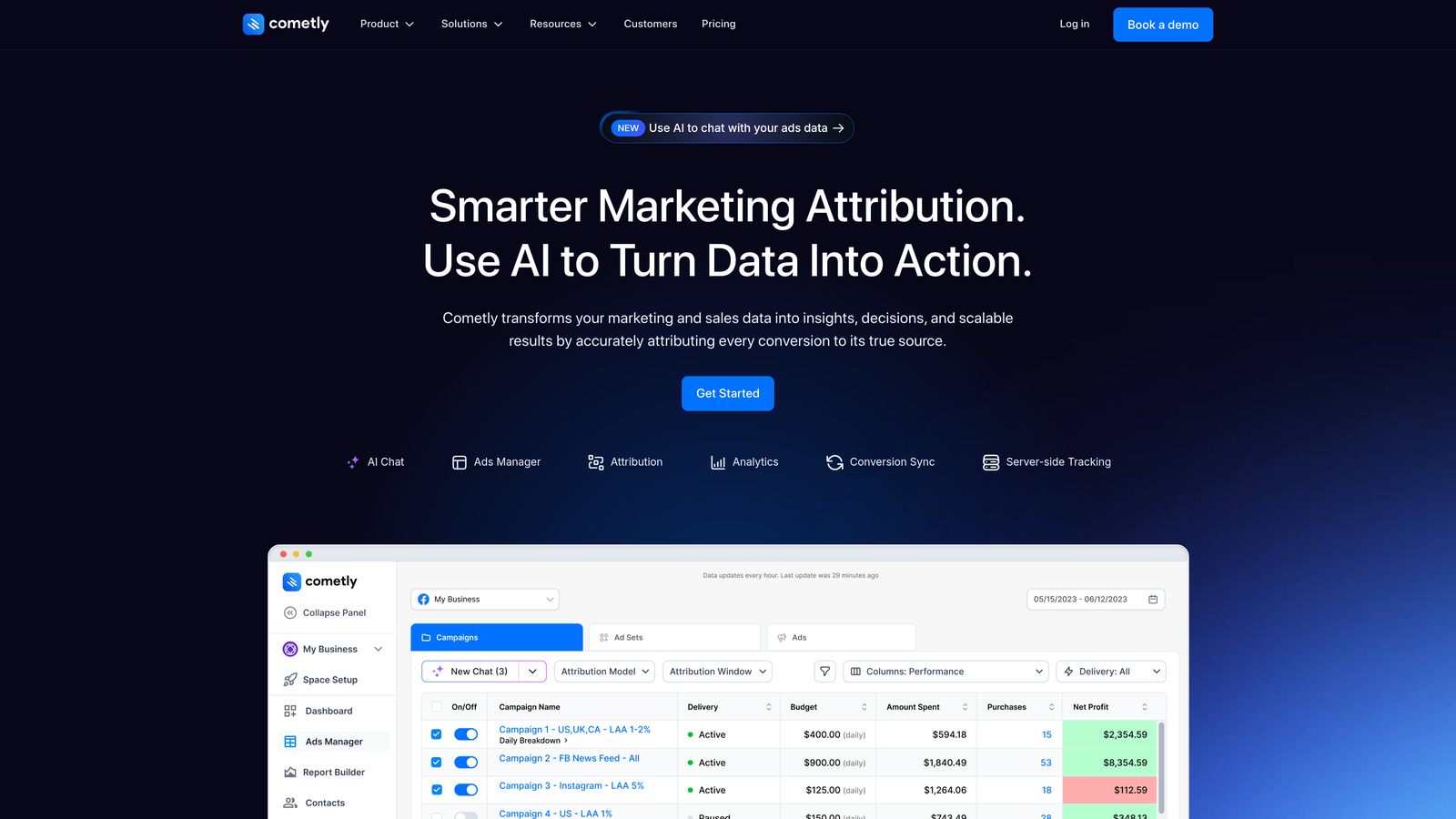
Key Features/Benefits:
1. Real-time optimization with AI: Cometly utilizes artificial intelligence to provide immediate insights that allow marketers to adjust their strategies as needed.
2. Ability to capture every touchpoint in the customer journey: This tool tracks all interactions users have with your brand, from the first ad they see to the final purchase.
3. High confidence in data accuracy: With precise tracking, businesses can trust the data they receive to inform their marketing decisions.
Pros and Cons:
- Pros: User-friendly interface, excellent customer support.
- Cons: Pricing may be steep for small businesses.
Many users have reported that Cometly significantly improves their marketing analytics, making it a vital tool for any serious Shopify merchant.
For more insights, check out reviews on G2.
Best for: Businesses looking for robust free tools to analyze their marketing performance.
Google Analytics is a powerful, free tool that integrates seamlessly with Shopify, providing in-depth insights into website traffic and user behavior. It's a staple for marketers seeking to understand how visitors interact with their online stores.

Key Features/Benefits:
1. Free to use with a wealth of resources for analysis: Google Analytics provides extensive data without any cost, making it accessible for all businesses.
2. Customizable dashboards: Users can tailor their reports to focus on the metrics that matter most to their business.
Pros and Cons:
- Pros: Extensive features, strong integration capabilities with other platforms.
- Cons: Steep learning curve for beginners.
Those who invest time in learning Google Analytics often find that it provides invaluable insights into their marketing performance. For a deeper understanding of Google Ads, visit this link.
Best for: Businesses needing a comprehensive data strategy for marketing.
Segment focuses on unifying customer data, ensuring businesses have a comprehensive view of their interactions across various channels. This tool is essential for marketers aiming to create a seamless experience for their customers.

Key Features/Benefits:
1. Unified customer data collection: Segment collects data from multiple sources, providing a single view of customer interactions.
2. Seamless integration with numerous marketing tools: This makes it easy to connect with other platforms and enhance your marketing stack.
Pros and Cons:
- Pros: Flexibility in data handling and analysis.
- Cons: Complexity in initial setup and implementation.
Businesses that implement Segment often report improved customer insights and engagement. Check out a relevant case study on Segment’s efficacy at their website.
Best for: Product-focused businesses wanting to understand user behavior deeply.
Mixpanel excels in tracking user events and interactions, providing in-depth analytics for businesses focused on product engagement. Its capabilities are particularly valuable for SaaS and mobile application developers.
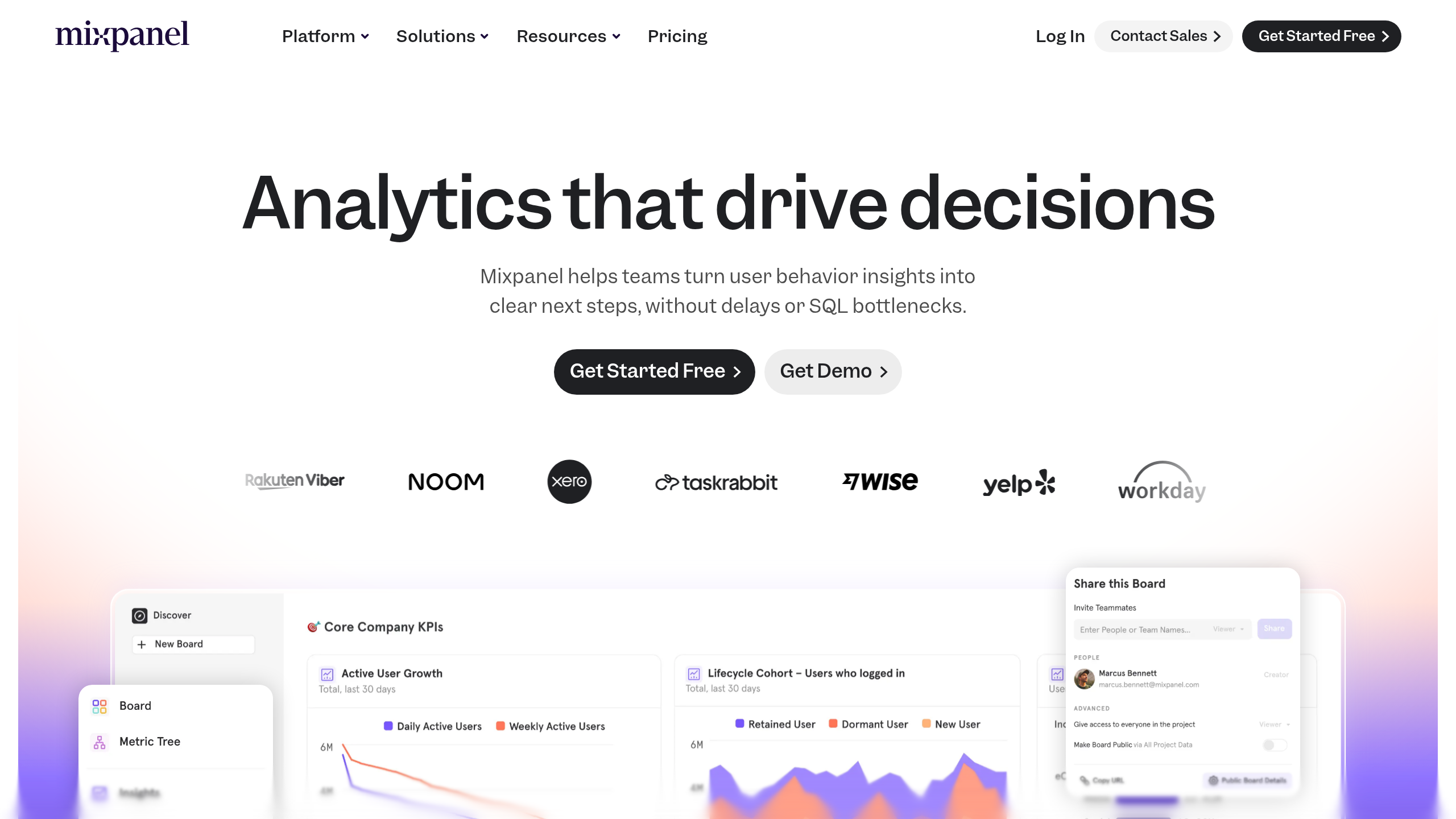
Key Features/Benefits:
1. Detailed tracking of user interactions: Mixpanel allows businesses to see how users engage with their product over time.
2. Powerful cohort analysis tools: These tools help segment audiences effectively to tailor marketing strategies.
Pros and Cons:
- Pros: Strong analytics capabilities, excellent for product teams.
- Cons: Limited reporting features compared to others.
Mixpanel's focus on user behavior can lead to significant insights for product improvements. For pricing details, visit Mixpanel's pricing page.
Best for: E-commerce businesses focused on effective email marketing strategies.
Klaviyo is renowned for its email marketing automation capabilities, particularly for e-commerce businesses looking to leverage data-driven campaigns. It integrates seamlessly with Shopify to enhance marketing efforts.

Key Features/Benefits:
1. Advanced segmentation: Klaviyo allows businesses to create highly targeted email campaigns based on user behavior.
2. Excellent integration capabilities with Shopify: This ensures that your email marketing efforts are aligned with your sales data.
Pros and Cons:
- Pros: High conversion rates from targeted campaigns.
- Cons: Can be expensive for larger email lists.
Many e-commerce businesses find success with Klaviyo, especially during promotional events. Learn more about PPC strategies at this link.
Best for: Businesses heavily invested in social media advertising.
Facebook Ads Manager offers a built-in attribution system that is vital for businesses engaged in social media marketing. This tool provides comprehensive insights into ad performance.
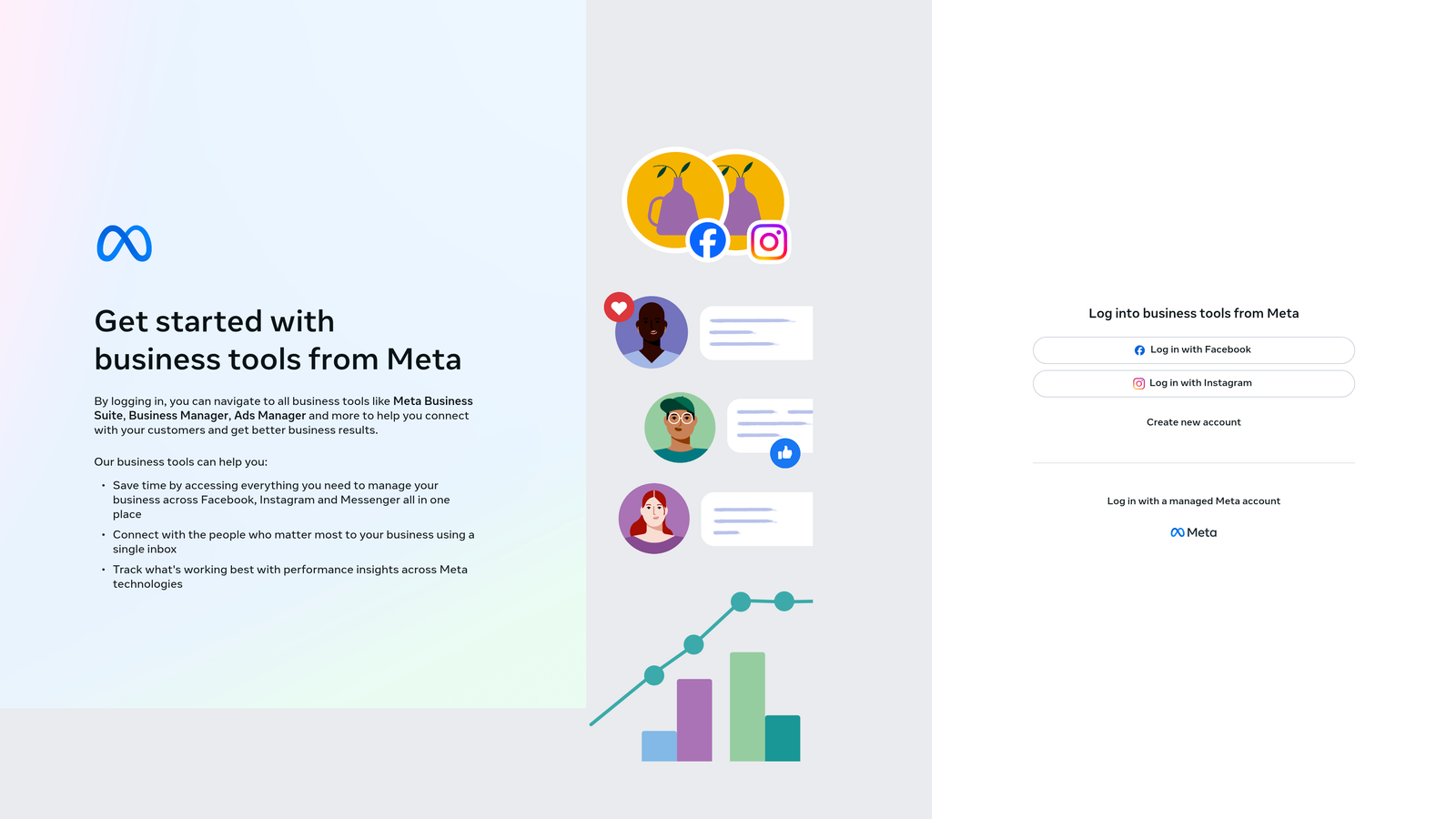
Key Features/Benefits:
1. Advanced targeting options: Businesses can engage specific audiences based on detailed demographics and interests.
2. Integrated reporting: This allows users to measure ad effectiveness and ROI seamlessly.
Pros and Cons:
- Pros: Comprehensive insights into ad performance.
- Cons: Complexity in understanding and utilizing metrics.
Facebook Ads Manager is essential for brands looking to maximize their social media marketing efforts. For deeper insights on acquisition metrics, read more at this link.
Best for: Marketers looking to visualize customer journeys effectively.
Funnelytics provides a visual representation of marketing funnels, helping marketers understand user flows and optimize conversion paths. This tool is perfect for those who prefer a visual approach to marketing analytics.
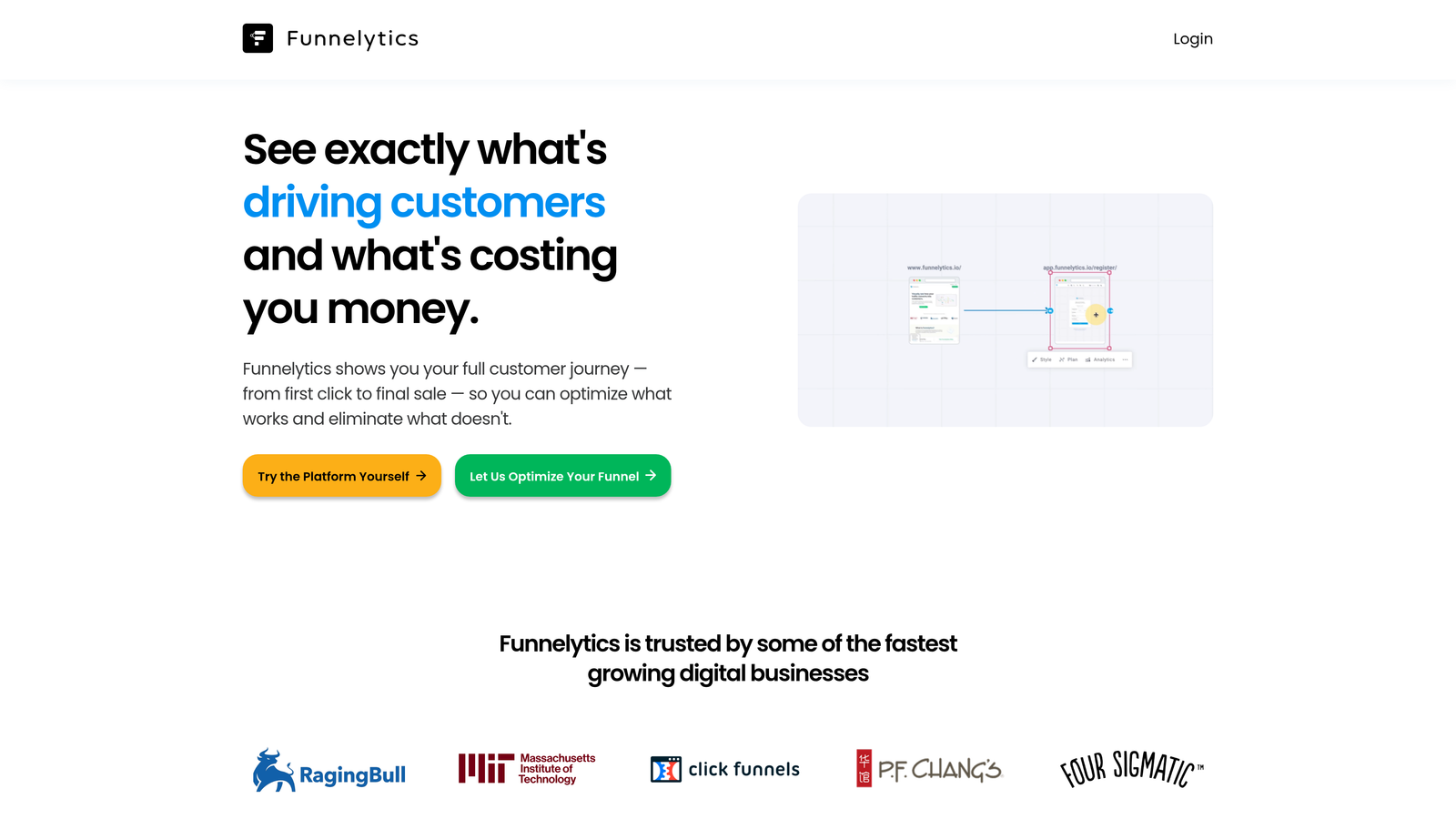
Key Features/Benefits:
1. Visual mapping of user journeys: This feature allows marketers to see how users navigate through their funnels.
2. User-friendly interface: Marketers without a technical background can easily use Funnelytics.
Pros and Cons:
- Pros: User-friendly interface for quick setup.
- Cons: Limited integrations with other tools.
Funnelytics can significantly simplify the process of understanding customer journeys. For more insights on AI tools, visit this link.
Best for: Businesses aiming to enhance user experience and optimize site performance.
Hotjar provides insights into user behavior through tools like heatmaps and session recordings, which aid in improving user experience. Understanding how users interact with your site is crucial for optimizing conversions.
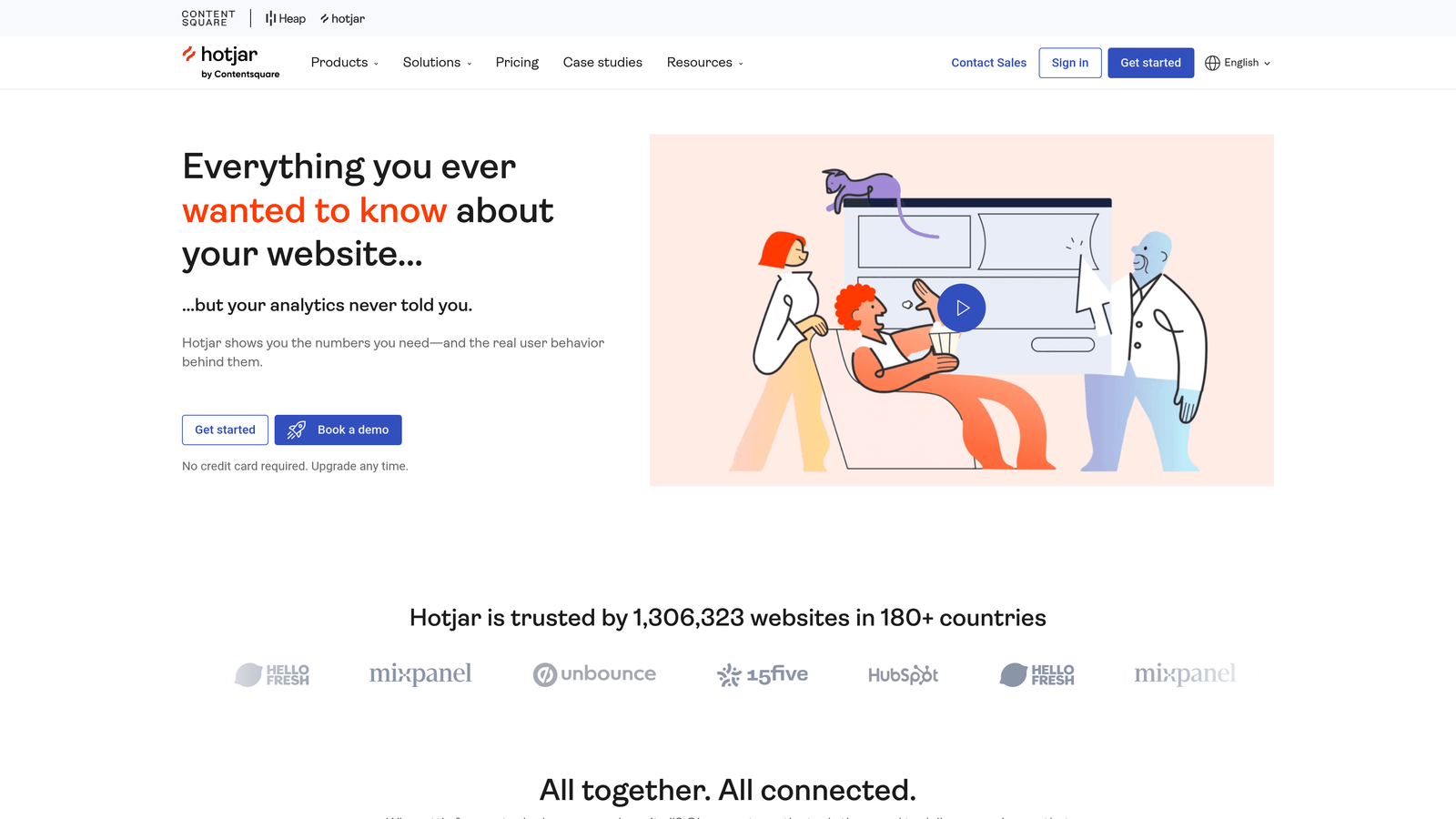
Key Features/Benefits:
1. Heatmaps: Visualize user interactions on your site to identify areas for improvement.
2. Session recordings: Watch how users navigate through your store to pinpoint drop-off points.
Pros and Cons:
- Pros: Easy setup and implementation.
- Cons: Limited data storage for free accounts.
Hotjar's tools can lead to significant improvements in user engagement. For a case study showcasing its impact, check out Hotjar’s website.
Best for: E-commerce businesses focusing on maximizing conversions through retargeting.
AdRoll specializes in retargeting campaigns, helping e-commerce businesses keep potential customers engaged through personalized ads. This tool is vital for brands looking to re-engage visitors.
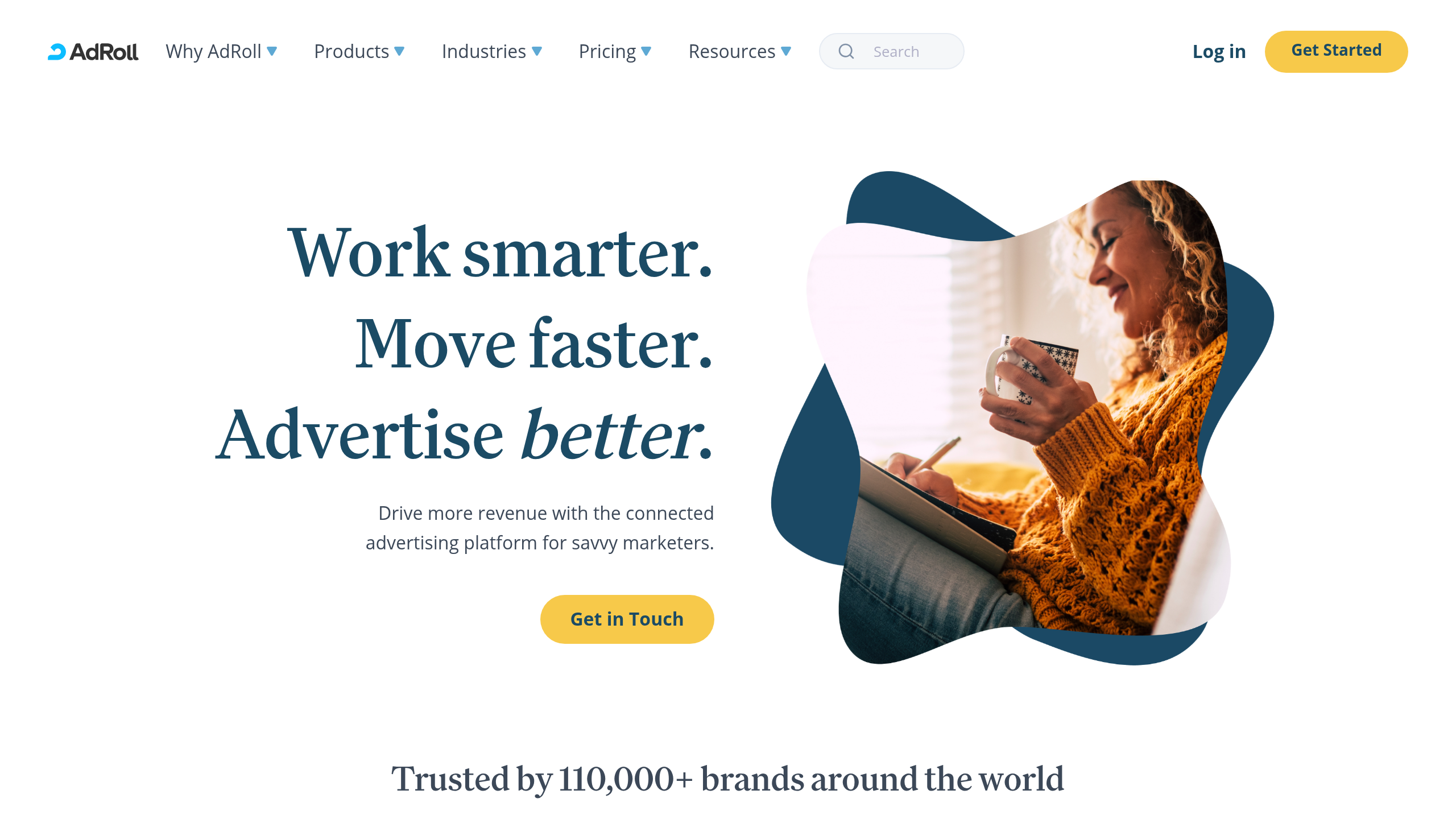
Key Features/Benefits:
1. Multi-channel tracking: Measure the effectiveness of retargeting efforts across various platforms.
2. Seamless integration with Shopify: AdRoll connects easily with Shopify to enhance advertising efforts.
Pros and Cons:
- Pros: Effective at increasing conversion rates.
- Cons: Can become quite costly depending on ad spend.
AdRoll's retargeting features can significantly boost conversion rates. For best practices, explore AdRoll’s resource center.
Best for: Businesses looking for an all-in-one marketing and sales solution.
HubSpot provides an integrated marketing solution with robust CRM capabilities, making it ideal for inbound marketing strategies. This tool is perfect for businesses looking to streamline their marketing efforts.
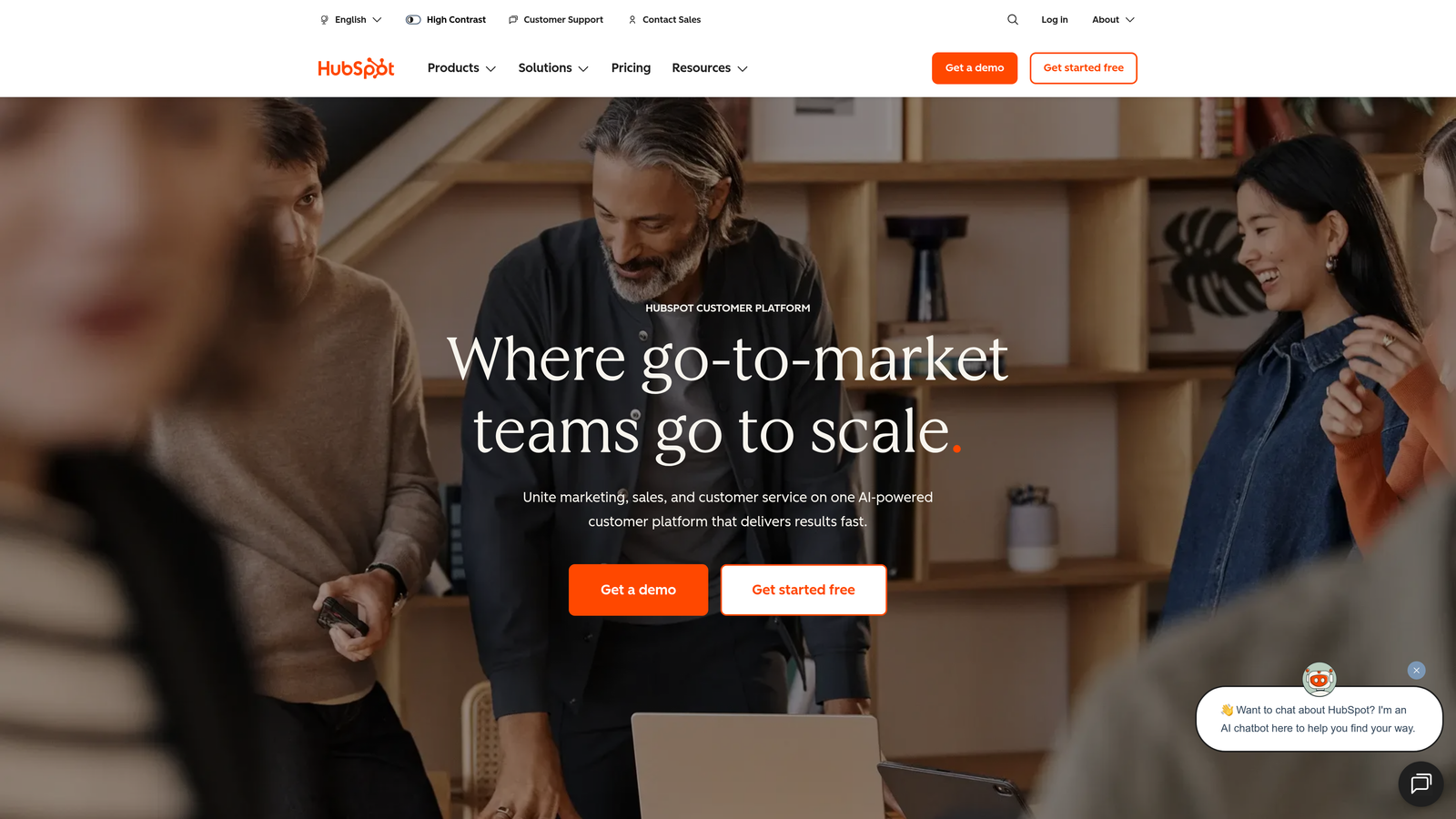
Key Features/Benefits:
1. Comprehensive CRM: HubSpot offers detailed analytics to help businesses track leads and conversions.
2. Excellent for managing inbound marketing efforts: HubSpot’s features are specifically designed to attract and engage customers.
Pros and Cons:
- Pros: Robust features for marketing automation.
- Cons: Can be overwhelming for beginners due to its complexity.
HubSpot is a vital tool for businesses looking to enhance their inbound marketing efforts. For additional marketing resources, visit HubSpot's blog.
As we’ve seen, the right attribution tools can significantly enhance your marketing effectiveness on Shopify. By understanding which channels drive results, you can allocate your resources more effectively. When selecting an attribution tool, consider your business size, budget, and specific marketing goals to ensure you choose the right fit.
Imagine a future where your marketing decisions are driven by solid data, leading to improved campaigns and higher ROI. Start your journey towards data-driven marketing today!
Ready to elevate your marketing game with precision and confidence? Discover how Cometly's AI-driven recommendations can transform your ad strategy—Get your free demo today and start capturing every touchpoint to maximize your conversions.
Learn how Cometly can help you pinpoint channels driving revenue.
.svg)
Network with the top performance marketers in the industry